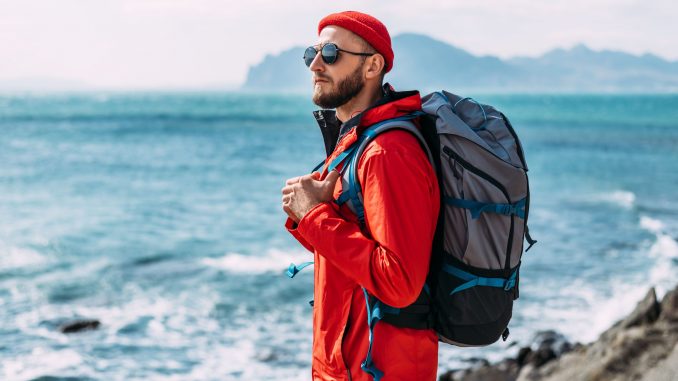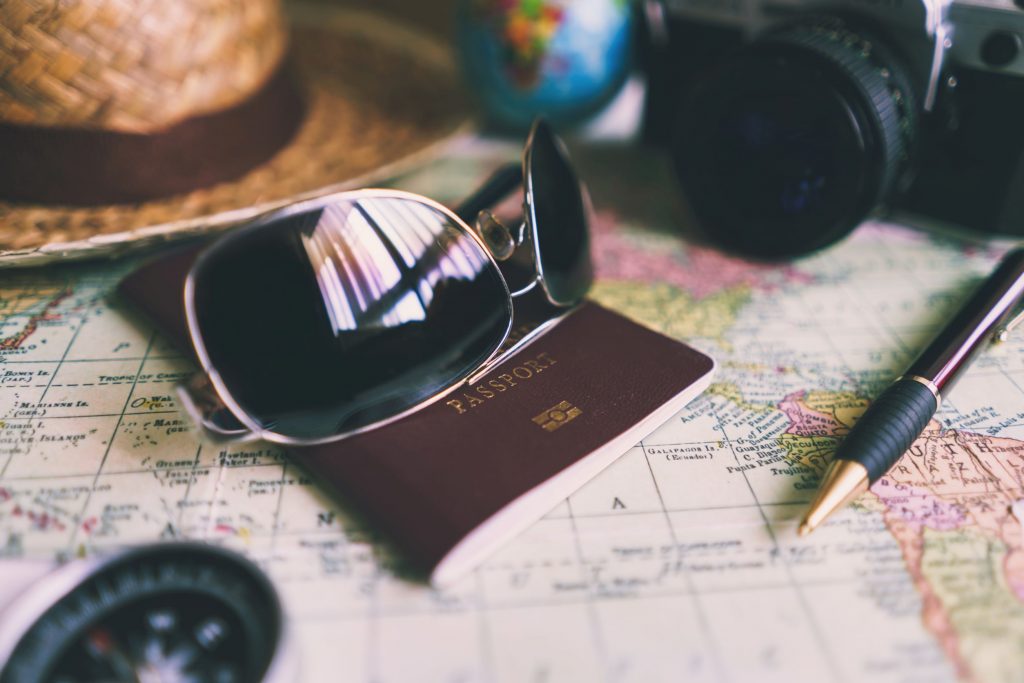
Travel can be stressful and challenging for many people. For some, it can even be downright terrifying. If you’re among the latter, this is a good time to check your travel habits and maybe throw some of your fears out the window.
You see, the good news is that this is a great time to explore the world, get away from it all, and see the beautiful sights that are hidden from everyone else. The bad news is that there’s a lot to take into account when planning a trip. However, the good news is that it doesn’t have to be nearly as terrifying as you may think. With just a little planning and research, you can make your trip as stress-free and fun-filled as possible, without sacrificing anything.
Here are a few simple tips for the savvy traveller.
Stick to your itinerary
When you go on a trip, don’t deviate too much. There are two reasons for this. Firstly, as much as you want to, you won’t be able to see everything on your trip in one short trip. If you travel too much and deviate from your itinerary, you’re more likely to get tired and frustrated. And, nobody wants to be tired and frustrated while on vacation. Secondly, you’re also more likely to get culture shock from dealing with different people and places if you deviate too much from your itinerary.
Your itinerary needs to be as thorough as possible. It needs to have dates, places to go, what you will be doing, and a backup plan in place for any issues. What is off-limits?
Research your destination
Study up on your destination before you go. Know why people go to the place you are going and then find out what they love about it. Do they have any specific places they go that they love? What are they doing? Also, keep in mind that even if places are not usually included in “touristy” things to do, they are still worth a visit. By researching your destination, you can put together a list of what you want to see and do, and then when you get there, you can see that it’s worth visiting for its own merits as well.
This research can be done online, in a book, or with a travel guide. You want to be sure you’re leaving nothing to chance. There’s a lot to learn and a lot to remember when you’re planning a trip. You don’t want to forget anything.

Research the essentials
Before you go, research the essentials. This may include a number of things such as the following: Where are you going? What are your plans? What’s your itinerary? What do you want to see?
If you have a specific goal in mind, this will help you focus more on what you want to get out of your trip and what you’re willing to sacrifice to get there. What are the essentials? Food and water, comfortable shoes and clothing, passports, money, a phone charger and a camera.
Bring travel insurance
It can be helpful to have travel insurance when you’re travelling. This is because it will cover you for medical expenses that are related to any travel-related injuries you may sustain during your trip. This is especially important when you’re travelling abroad to a country that you’re not familiar with. You should also make sure that your travel insurance covers lost luggage as well. Travel insurance is a good way to protect yourself against any unexpected expenses that may come with travelling.
Book your accommodation well in advance
One of the most stressful parts of travelling can be finding a good place to stay. This is especially true when you’re travelling internationally. Accommodations throughout the world can range from cheaply priced hotels to expensive and luxurious resorts. Finding a good place to stay can be very stressful, but there is a way to make it a little easier.
You should make sure to book your accommodation well in advance. By doing this, you can get a good idea of what type of accommodations you want and make sure to avoid all of the bad ones. This can really help you to save a lot of time and stress when it comes to finding a place to stay.
Spend a little money here and there
Spend your money where you want to, based on your interests and wants. However, don’t go to Europe and skip Greece and Italy because they are not as expensive as other places. Also, don’t go to the Middle East and skip the more touristy places in the region due to affordability. Rather than focusing on what you can’t afford, focus on what you can afford, and then you will have a much better time.
Don’t be afraid to ask for help
If you’re overwhelmed by the thought of travel, don’t be afraid to ask for help. Whether it’s from friends and family, or from a travel agent or website, there are a lot of resources available to you to help you with your trip. If you don’t know where to turn for help, try consulting with your local travel association or city tourism board.
Travel agents and websites also often have resources available to help you plan your trip. If you are unsure about how to put together a trip or what to do or see on your trip, these sites can help you with that as well.
If you do decide to do it on your own, the best thing you can do is make a plan. A detailed plan helps you stay on track and avoids the risk of being off-route.
Plan ahead for the unexpected
When you are planning a trip, make sure you include an emergency fund. This allows you to be prepared for any unforeseen events that might make it difficult for you to travel. This can include a family illness, car breaking down, flight cancellation, or any other unforeseen event that could make it difficult for you to have a getaway. The best way to do this is to set up a savings account with a set amount that you will put into it once a month. If you have an emergency, you will have enough money to get out of it.

Bring your own travel essentials
- Emergency water – Make sure to have a water bottle with you at all times, just in case you get stranded somewhere. Water is a big issue in many parts of the world and can be hard to come by. Make sure you have enough water with you just in case.
- Emergency money – If you end up breaking down somewhere or having an unforeseen expense come up, you will want to be able to pay for it with cash. This can be particularly difficult in some parts of the world.
- Emergency phone – This is another essential that some people forget. Having a cell phone is helpful in case there is an emergency and you need to contact someone.
- Emergency gear – While you’re at it, make sure you have a first aid kit with you. Nothing is worse than having an unexpected expense and not being able to pay for it.
Pack for comfort and ease
As much as you want to bring back the memories of all your travels, you also want to be comfortable while you’re doing it. This means bringing along some things that make your life and travels easier. These include: A comfortable pair of shoes that you can wear anywhere, a backpack you can carry comfortably, a carry-on suitcase that you can toss around without taking much effort, and a tablet that you can use to read on the go and write on blogs. These are the things that make the world and your travels a lot more enjoyable.
When it comes to packing for a trip, there are no hard-and-fast rules. However, there are a few things that you should be sure you bring with you.
- A copy of your passport
- A copy of your itinerary
- Food and water
- Clothes
- Your medications
- A good travel bag
- first-aid kit
- Anything else you need
Don’t overcommit
When you travel, don’t overcommit. Travelling is fun and refreshing, but a little bit of pressure and stress is fine. However, when you begin to overcommit, your vacation turns into a nightmare. The best way to handle this is with a strong travel schedule. This isn’t a time to cram in as many trips as possible while still maintaining a healthy work balance.
Network with locals
The best way to experience a new place is to get to know the locals. This doesn’t mean that you have to become friends with them, but it does mean that you can do some friendly small talk while you’re taking photos. This is also a great way to meet people while you’re travelling. Plus, it’s a great way to make some new friends and to get to know more about your fellow humans.
Don’t just wing it
Forget the whole “backpacking across Europe” thing. This is truly a 21st-century opportunity. Yes, you can still do it, but you’re going to need a whole lot more than a piece of paper in your passport. If you want to travel safely, legally, and without unnecessary anxiety, you’re going to want to follow a few simple guidelines.
You can’t just duck out one day and say you’re going on a trip. You’re required to give notice to your employer. You need to be sure that your employer knows where you’re going and for how long. You also need to have a plan for getting back to work if/when you have to go back early. Have your emergency contacts and close family/friends/colleagues/etc. on speed dial, in case something happens and you can’t get back to them easily. And lastly, you need to know when your trip is over and when you need to be back.
Take care of business before you leave
While you’re living your life and saving up for that dream vacation, it’s very important for you to have a plan for what you need to do before you ever leave. Depending on the length of your trip, you may need to get your passport, gather all necessary medical records, and perhaps even get a work extension. There may also be things you need to do prior to leaving that aren’t related to your personal life. For example, your electricity/water/gas may need to be turned off, your mail may need to be forwarded, and so on.
You may be asking yourself what’s the difference between a “food bag” and a “first-aid kit”. The answer is that many people think a first-aid kit is solely for medical emergencies. However, it can also be useful for things like splinters, blisters, and even colds/flu. A food bag is typically just that: food.

Don’t be scammed by the scammer
The Internet is a wonderful place and can be very useful for researching and planning your trip. However, you must be careful when searching for travel deals and deals. There are a lot of online travel scams available online and unfortunately, they can be very convincing. There are many fake travel websites that promise the world but are just rip-offs. You should stay away from these websites. They will take your money, but they won’t send you on your trip.
There are other scams, however, that is a little more difficult to identify. These are scams that are based on your intentions, not just what they can do for you. For example, you may have been told that you need to pay a fee to get a visa before you travel. This is not true. There is no such fee and you don’t need to pay it.
Get a VPN to secure your data
The Internet is a very useful thing, but it can also be a very dangerous thing. There are many ways that hackers can infiltrate your computer and steal your sensitive data. Unfortunately, this is very common – especially when it comes to booking flights. With the ease of booking flights online, it is very easy for hackers to get into your accounts and book a flight for themselves. To avoid this, you should use a VPN when browsing the Web. VPNs are basically secure tunnels that you can use to browse the Internet in a very secure way. Basically, it allows you to hide your IP address and make your data very difficult to track. VPNs also offer a lot of extra security benefits, such as protecting you from DDoS attacks and protecting your data from hackers trying to steal it.
Eat, sleep, and breathe sightseeing
You’re probably aware that this is a big part of travelling, but you may not be as famished as you think. We’ve all heard the advice that you should eat before you go on vacation and eat lots while you’re gone, but you may not be doing either of these things. If you’re heading somewhere with a laid-back culture, you may be missing out on the opportunity to learn from the locals. If you’re not eating, you’re not drinking plenty of liquids, and you’re not taking care of your stomach, you’re going to be miserable. If you’re not sleeping, you may be too wired to focus on touring properly. And if you’re not breathing, you’re going to be a nervous wreck.
Bottom Line
Travel is a great experience, but it can be nerve-wracking if you aren’t prepared. Follow these tips to make your trip easier and safer. The world is waiting for you, so grab your passport and get ready to explore!
